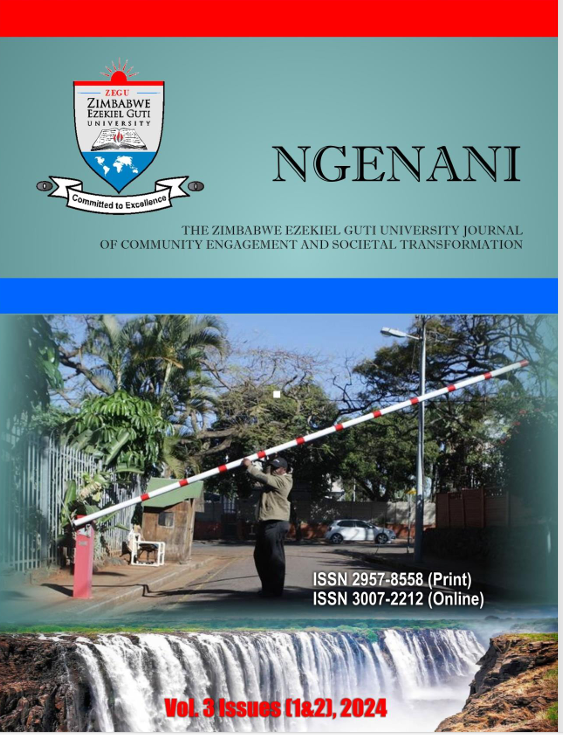A Re-Think of Climate Resilience an SDG Issue for Sustainability in the Global South
DOI:
https://doi.org/10.71458/hse8pa75Keywords:
hazard, impact, inequalityAbstract
The adverse impacts of climate change are not only entirely an environmental or economic issue; they also impact the substantive enjoyment of fundamental human rights. Population groups in vulnerable positions are among the disproportionately affected by climate change. The populations extremely affected often do not contribute in decision-making processes on actions that address climate change. This research utilises a qualitative method, case study approach that highlight sustainability issues relating to climate resilience in the Global South. Secondary data analysis was the data gathering tool through reviewing existing literature on climate resilience issues and SDGs. The research concludes and recommends that, policies must pave way towards attaining the kind of transformations necessary to build inclusive and climate-resilient communities. Disaster risk reduction and disaster management are evidently playing an important role in reinforcing the preparedness and early warning capacities required to confront and mitigate climate hazards. Social protection policies are essential to protect lower-income groups against the threats of climate hazards. Adaptation policies, such as those requiring the adoption of new crops or enhanced irrigation systems, are critical to preventing a worsening of livelihoods as a consequence of climate hazards. To be successful, these policy responses must be part of a comprehensive development framework that leads the way to the empowerment of underprivileged groups.




